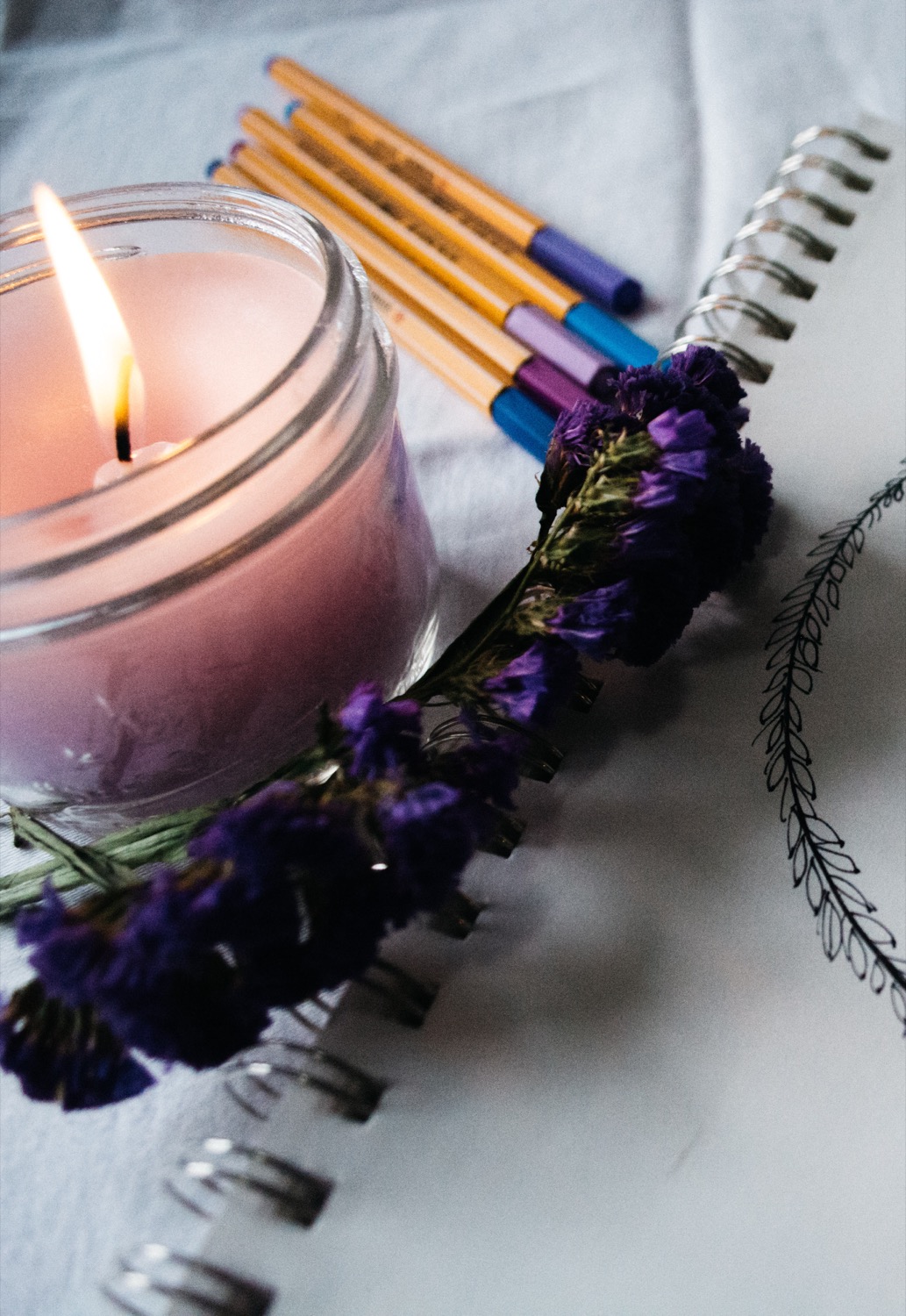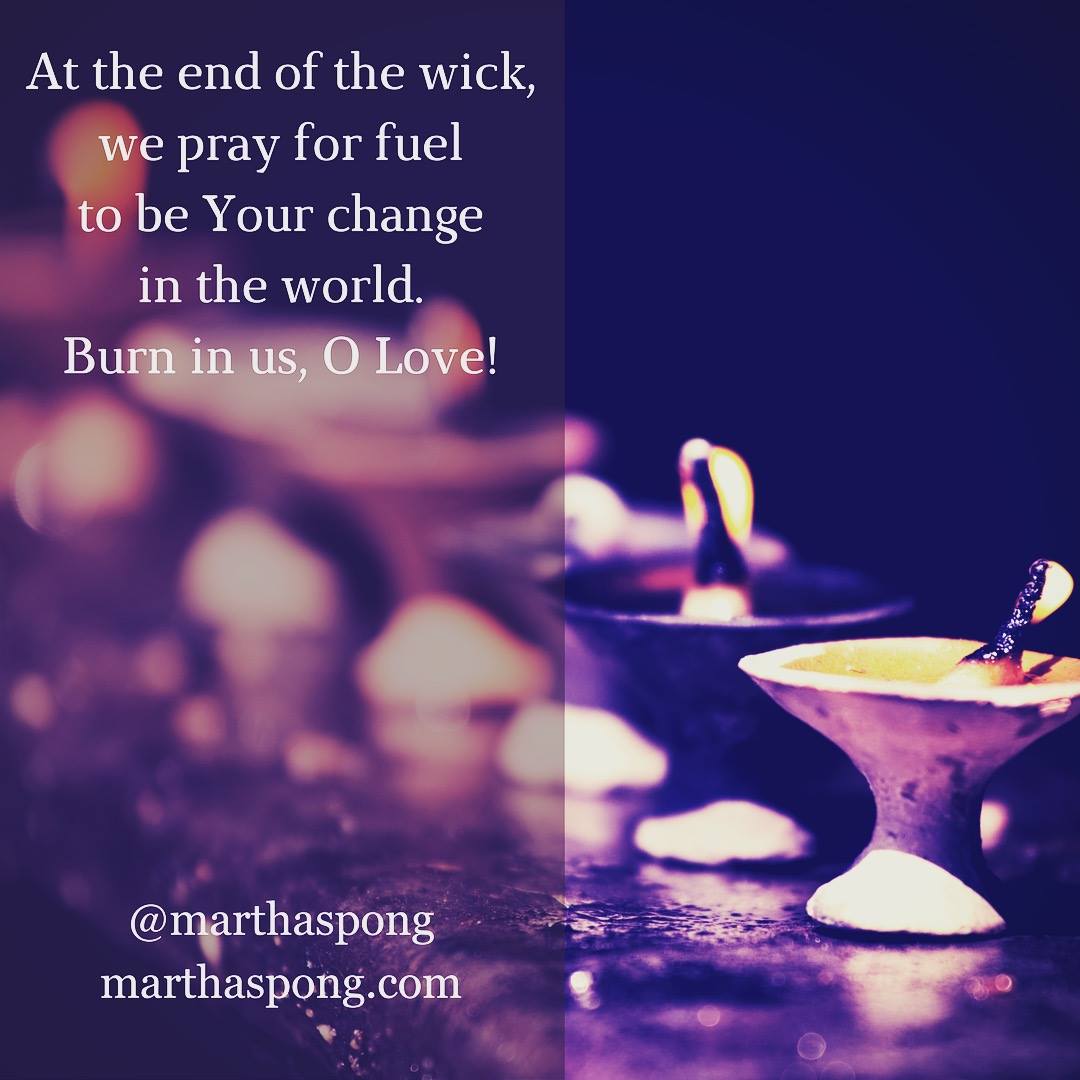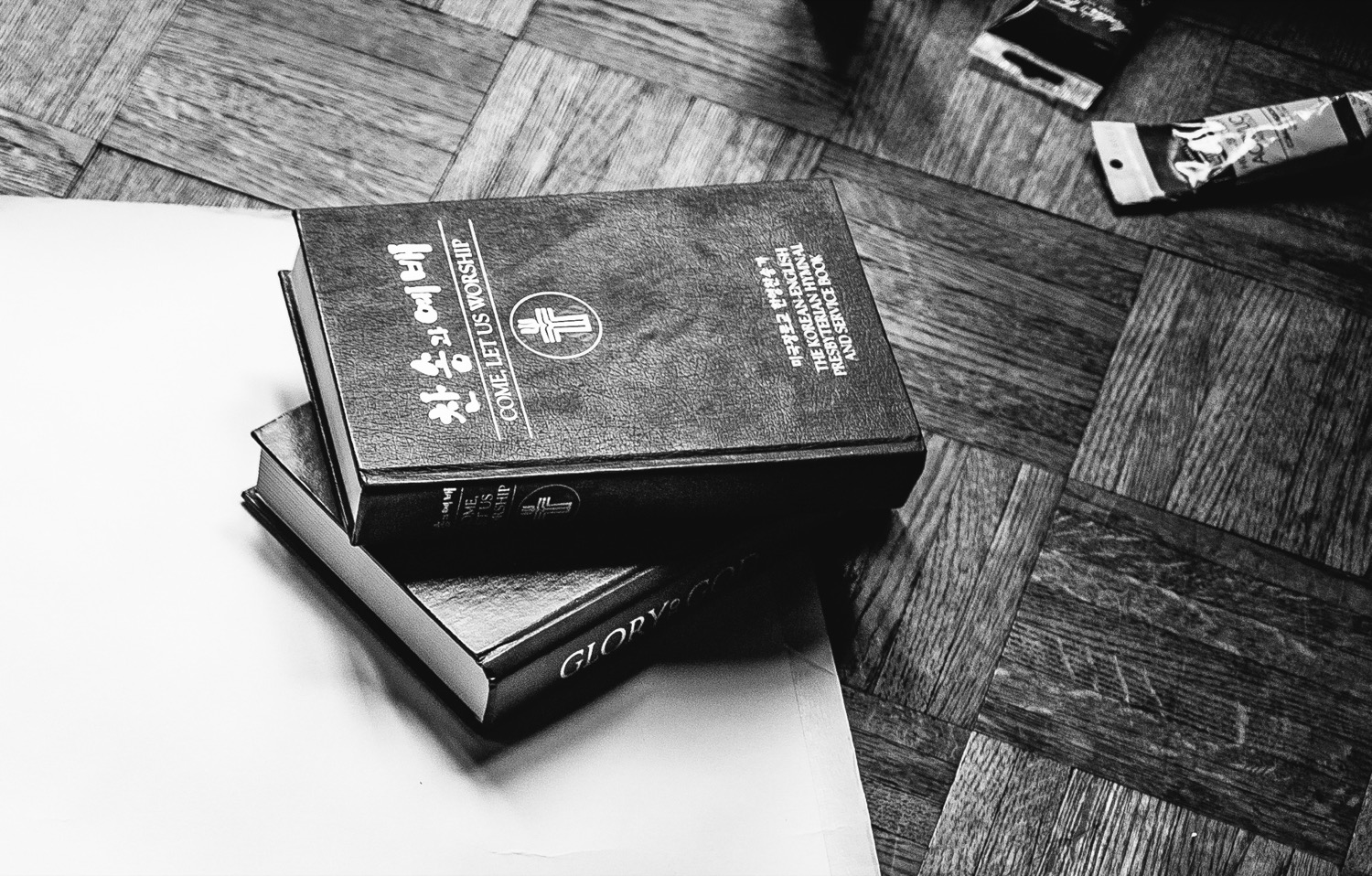Better When Writing—wholeheARTed guest, Rev. Martha Spong
Our wholeheARTed guest this week lives out a creative calling that roots her in collaboration—with inspiration, words, and people. As the Executive Director of RevGalBlogPals, an online platform connecting women clergy all around the world, Rev. Martha Spong believes in the power of words to create sacred space and common ground. As a pastor to pastors, clergy coach, and author, Martha lives into her multi-vocational calling with her creativity by her side.
We are grateful to share pieces of Martha's story with you. After reading more below, be sure to catch up on our other wholeheARTed guests here.
“All I know for certain is that this is how I want to spend my life—collaborating to the best of my ability with forces of inspiration that I can neither see, nor prove, nor command, nor understand.
It’s a strange line of work, admittedly.
I cannot think of a better way to pass my days.”
SA: When did you first consider yourself a creative person?
MS: From the time I was a little girl, I loved thinking up stories. I would draw (very bad) pictures of the children I hoped to have and invent names and identities for them. I retold myths and adapted adventures of favorite characters from literature. I especially loved Bible stories and would “tell” them on the flannel board I stored under the high old-fashioned bed in my childhood home. A wonderful Sunday School teacher at the Old Presbyterian Meeting House in Alexandria, Virginia, gave me permission to expand my storytelling when she developed curriculum for 5th and 6th-graders that taught the Old Testament through drama and the New Testament using puppets. We learned stories, wrote scripts, and acted or performed the stories.
SA: Tell us about how you express yourself creatively?
MS: I experimented with many forms of writing both in school and personally, but I never found a form that suited all my interests until I started writing for church—plays, sermons, and liturgies all felt like lively and faithful ways to use my gifts. Even when I write about my life, as I began doing in blog form in 2004, the most meaningful storytelling happens in dialogue with scripture. I now write prayers especially for pastors. My newest favorite thing is combining words and images using Canva, Prisma, and Instagram.
SA: What is your creative process like?
MS: My creative process almost always starts with a text I will be talking to, and I wish I could say that inevitably means I study and pray, but often it means I read the text and go for a walk, or have to run an errand, or find myself waiting at a child’s choir practice or watching a Little League game, and something flashes through my mind. Ten years ago I would rifle through my purse for a tiny notebook, but today I open the Notes app on my iPhone and one-finger type or dictate the thought before I lose it. It happens that way because I cultivate openness and privilege originality. I do as little reading of other people’s thoughts as possible, although I do love bringing some nerdy linguistic research into (word) play, comparing translations and even looking at an interlinear, allowing those flashes to guide me.
Whether my product is a sermon, a prayer or litany, a worship drama, even a Sunday School lesson or preaching resource, the next conversation partner is the context. Who will be in the congregation? What is going on in the world? What might move people and whose voice can best speak the words I have in mind? How can I say this so that it remains true to the text but turns the word or the story around in a way that makes it feel new?
In my first congregation I had an informal acting troop, eight people who were willing to try anything once. I became accustomed to their voices and could write with particular people in mind, always knowing that they would be heard in a way that communicated on multiple levels. I develop the ideas that came from the original flash of lightning with speakers, including myself, and listeners in mind. I loved doing this work in a local church because of the fairly immediate feedback as well as the gift and necessity of moving on to something else the next week.
SA: What does fear look like for you and how does it show up in your creative process?
MS: There always comes a time when I think what I am working on is terrible. Fear says, “You don’t have anything new or meaningful to say. Why would anyone want to listen to you?” I’m not a believer in a literal devil; I wish I could blame that fear on an outside force. Lack of trust in the process is my sin. I should know by now that if I show up and commit myself to the work, the Spirit will not abandon me.
“There always comes a time when I think what I am working on is terrible. Fear says, ‘You don’t have anything new or meaningful to say.’”
SA: How do you push beyond fear and self-doubt when they emerge during the creative process?
MS: I’m blessed to have a best friend in my spouse; she has known me long enough to see when I am spinning and remind me, sometimes with as little as a raised eyebrow, that my fear does not reflect reality. There are friends who will offer similar encouragement when I need them. Somewhere just on the other side of my discomfort is a finished product.
SA: How is your creativity connected to your faith?
MS: I think you could say my creativity, as expressed in writing, *is* my faith. I work through fear and doubt in the creative process much more easily than in other areas of my life. I understand that my calling is to be useful on behalf of Jesus Christ. When I worked in a parish setting, I felt blessed to be able to include my creative work. I will confess that as writing becomes my primary work and the audience is an un-gathered body I may never see face to face, I need to learn faith in the process and trust in the Spirit at a deeper level.
SA: How does creativity lead you to wholeness?
MS: Writing, for whatever purpose, works on me. I do not believe the lies fear tells when I see them in my own handwriting. I am less likely to give up on trying something new if I write about it. I have a better sense of where I really am and who I love and what I want when I put it down on the page or the screen. God reaches me through these “notes to self” that are really notes from the Spirit. Mentally, emotionally, and spiritually, whatever is going on in the world or in my life, I’m better when I’m writing.
There’s a Woman in the Pulpit: Christian Clergywomen Share Their Hard Days, Holy Moments & the Healing Power of Humor edited by Rev. Martha Spong. Learn more here.
Rev. Martha Spong
Rev. Martha Spong is the Executive Director of RevGalBlogPals (revgalblogpals.org), a United Church of Christ pastor, a clergy coach, co-author of "Denial is My Spiritual Practice, and Other Failures of Faith" (Church Publishing, forthcoming in 2018), and editor of "There's a Woman in the Pulpit: Christian Clergywomen Share Their Hard Days, Holy Moments, and the Healing Power of Humor" (SkyLight Paths, 2015). She has written for Christian Century, Lectionary Homiletics, Present Word, and the Abingdon Creative Preaching Annual. You can find her Prayers for Pastors and other writing at marthaspong.com.











